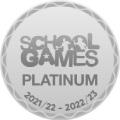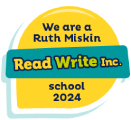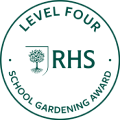Design & Technology
Intent
At Wistaston Academy we recognise Design and Food Technology as an inspiring, rigorous and practical subject underpinned by the school’s overarching quality principles of:
- Striving for excellence and innovation
- Being authentic
- Being exciting, inspiring and engaging
- Ensuring a positive and inclusive experience
- Actively involving children
- Enabling personal progression
- Developing belonging and ownership
- Promoting STEM learning and future career opportunities
Design and Food Technology encourages children to think creatively to solve real-life problems, working as individuals or contributing as part of a team. We actively encourage children to explore and analyse a range of existing products and then use this information to inform the development and direction of their own ideas. The importance of design as an iterative process underpins the teaching and learning ethos throughout the school. At Wistaston Academy, we believe that children should be given the freedom to explore, evaluate, improve and refine their ideas with the support of knowledgeable staff and the provision of quality materials and resources and wherever possible, we strive to link work to other disciplines such as Mathematics, Science, Engineering and Computing. By instilling the values of independence, resilience and critical evaluation, staff at Wistaston Academy provide the opportunity for pupils to flourish into creative, free-thinkers with the confidence to explore the world around them.
We have designed the Design and Food Technology curriculum at Wistaston Academy to meet the following National Curriculum objective, whilst being progressive and responsive to the ever-changing needs of the children, wider school community and modern world. The fundamental objectives core to the planning and delivery of Design and Food technology are:
- Teaching the importance of iterative design is promoted from the outset with children given the time and opportunity to evaluate and improve on their ideas.
- Creating authentic products made for an intended user and specific purpose.
- Promoting individuality, creativity and free-thought through the provision of a wide-range of materials and appropriate resources, thus enabling our students to explore and refine their ideas without the constraints of limited choice.
- Allocating time for Focused Practical Tasks which form an essential part of the teaching and learning process, so that the development of skills and knowledge is planned and equally balance.
- Reducing teacher modelling of example products, leading to a greater emphasis on innovation.
- Investigating seasonality of ingredients, how they are grown, caught or reared and how these impact on their availability and cost.
- The introduction of computing and coding of products in KS2.
- Researching key events and individual designers in the History of Technology in KS2.
- Supporting all pupils to access a wide range of Design and Food Technology resources and materials, which are regularly checked and updated to ensure they are in good working condition and are age and ability appropriate.
- Educating children on how to use equipment safely, not waste the available resources and operate within an ethos of respect and care for their working environment.
- Promoting Design and Food Technology in real-life contexts so that children make tangible links between what they learn in class and how they could use this in a wider context.
Implementation
The Design and Food Technology curriculum at Wistaston Academy addresses the requirements of the Primary National Curriculum 2013, which can be viewed here:
Lessons have been planned to provide a sequential framework of progression. This allows pupils to gain the skills they need to fully engage with the current learning objectives, and prepares the foundation for further knowledge development as pupils move through the school. Children work within a range of contexts, considering their own needs and those of others to ensure that learning is relatable and relevant. The curriculum is overseen by the Design and Food Technology Lead, who has a background in teaching this as a specialist subject across the Primary curriculum. The Design and Food Technology Lead works alongside class teachers, to plan, monitor and continually evaluate the Design and Food Technology that is taught at Wistaston Academy to ensure it is effective, exciting and continually improving. As the skill of reading is prioritised across the curriculum, opportunities to explore a range of texts through the study of Design and Food Technology, provides the children with a deeper understanding of the subject and its relevance to their lives.
Design and Food Technology is a valued subject and, as such, opportunities are sought for enrichment opportunities and wider community engagement. The subject is promoted through annual events such as STEM Day, The Royal Cheshire Show, The Regional Lego League and The Greenpower Goblin Series.
The framework for curriculum planning across the school is guided by the National Curriculum and takes the following form:
Early Years Foundation Stage
During the EYFS pupils explore and use a variety of media and materials through a combination of child initiated and adult directed activities. They have the opportunities to learn to:
- Use different media and materials to express their own ideas.
- Use what they have learnt about media and materials in original ways, thinking about form, function and purpose.
- Make plans and construct with a purpose in mind using a variety of resources.
- Develop skills to use simple tools and techniques appropriately, effectively and safely.
- Select appropriate resources for a product and adapt their work where necessary.
- Cook and prepare food adhering to good health and hygiene routines.
Key Stage 1
Through a variety of creative and practical activities, pupils are taught the knowledge, understanding and skills needed to engage in an iterative process of designing and making. They work in a range of relevant contexts, (for example the home and school, gardens and playgrounds, the local community, industry and the wider environment).
When designing and making, pupils are taught to:
Design
- design purposeful, functional, appealing products for themselves and other users based on design criteria.
- generate, develop, model and communicate their ideas through talking, drawing, templates, mock-ups and, where appropriate, information and communication technology.
Make
- select from and use a range of tools and equipment to perform practical tasks, (or example, cutting, shaping, joining and finishing).
- select from and use a wide range of materials and components, including construction materials, textiles and ingredients, according to their characteristics.
Evaluate
- explore and evaluate a range of existing products.
- evaluate their ideas and products against design criteria.
Technical knowledge
- build structures, exploring how they can be made stronger, stiffer and more stable.
- explore and use mechanisms, (for example levers, sliders, wheels and axles), in their products.
Food and Nutrition
As part of their work with food, pupils are taught how to cook and apply the principles of nutrition and healthy eating. Instilling a love of cooking in pupils will also open a door to one of the great expressions of human creativity. Learning how to cook is a crucial life skill that enables pupils to feed themselves and others affordably and well, now and in later life.
Pupils will be taught to:
- use the basic principles of a healthy and varied diet to prepare dishes.
- understand where food comes from.
Key Stage 2
Through a variety of creative and practical activities, pupils should be taught the knowledge, understanding and skills needed to engage in an iterative process of designing and making. They should work in a range of relevant contexts, for example, the home, school, leisure, culture, enterprise, industry and the wider environment. Within Key Stage 2, key events and individuals that have influenced the world of Design and Food Technology should be introduced and explored. The use of computer programmes and applications are also a key focus to be utilised by children in their design of their products.
When designing and making, pupils should be taught to:
Design
- use research and develop design criteria to inform the design of innovative, functional, appealing products that are fit for purpose, aimed at particular individuals or groups.
- generate, develop, model and communicate their ideas through discussion, annotated sketches, cross-sectional and exploded diagrams, prototypes, pattern pieces and computer-aided design.
Make
- select from and use a wider range of tools and equipment to perform practical tasks, such as cutting, shaping, joining and finishing, accurately.
- select from and use a wider range of materials and components, including construction materials, textiles and ingredients, according to their functional properties and aesthetic qualities.
Evaluate
- investigate and analyse a range of existing products.
- evaluate their ideas and products against their own design criteria and consider the views of others to improve their work.
- understand how key events and individuals in design and technology have helped shape the World.
Technical knowledge
- apply their understanding of how to strengthen, stiffen and reinforce more complex structures.
- understand and use mechanical systems in their products, (for example gears, pulley, levers and linkages).
- understand and use electrical systems in their products, (for example series circuits incorporating switches, bulbs, buzzers and motors).
- to apply their understanding of computing to program, monitor and control their products.
Food and nutrition at KS2
As part of their work with food, pupils should be taught how to cook and apply the principles of nutrition and healthy eating. Instilling a love of cooking in pupils will also open a door to one of the great expressions of human creativity. Learning how to cook is a crucial life skill that enables pupils to feed themselves and others affordably and well, now and in later life.
Pupils should be taught to:
- understand and apply the principles of a healthy and varied diet.
- prepare and cook a variety of predominantly savoury dishes using a range of cooking techniques
- to understand seasonality, and know where and how a variety of ingredients are grown, reared, caught and processed.
Impact
Staff at Wistaston Academy strive to support our pupils to develop the creative, technical and practical expertise needed to perform everyday tasks confidently and to participate successfully in an increasingly technological world. We support our pupils to build and apply a repertoire of knowledge, understanding and skills in order to design and make high-quality prototypes and products for a wide range of users and purposes. Through the iterative process, pupils are given the time to test, critique and evaluate their ideas and the ideas of others. Whilst striving for a good quality finish that is age and ability appropriate, equal value is placed on the reflective and evaluative nature of the learning journey. This prepares our students with the knowledge and skills they need to successfully progress from Wistaston Academy to the next phase of their education. We feel that this approach best supports our pupils to take risks and become increasingly self-sufficient, so that they are empowered to make an essential contribution to the culture, creativity, wealth and well-being of the nation.
Impact is measured by:
- Assessing children's learning in Design and Food Technology through the on-going monitoring of children's understanding, knowledge and skills by the class teacher, throughout lessons. This assessment is then used to inform differentiation, support and challenge required by the children.
- Summative assessment is conducted termly by class teachers across each year group of the school to inform the subject leader of progress or skills and knowledge still to be embedded. This is recorded on the learning objective sheet at the start of each topic or unit.
- EYFS pupils' progress and attainment is tracked using the Tapestry observation recording system and set against the EYFS framework, telling us whether each individual child is below expected, at expected or above expected attainment for their age.
- Successful engagement in wider community projects such as The Lego League, The Royal Cheshire Show and The Greenpower Goblin Series which promotes the work of the school and creates new opportunities for the pupils who attend it.
Design and Food Technology is also monitored throughout the year by the subject lead. This takes the form of:
- book scrutinies
- lesson plan moderation
- lesson observations
- staff and pupil views gathered through interviews and questionnaires
Equal Opportunities and Inclusion
The whole school policy on equal opportunities is adhered to throughout the planning and delivery of Design and Food Technology lessons. Teachers ensure that all children have access to the full range of Design and Food Technology activities and use opportunities to challenge stereotypes.
All pupils with Special Educational Needs and/or Disabilities are supported to engage fully with Design and Food Technology lessons by ensuring fair and equal access to the curriculum. Examples of how this is achieved includes, but is not limited to:
- visual timetables, prompts and learning aids to structure lessons and communicate expectations
- differentiated learning objectives and tasks
- adapted or specialised equipment and resources
- additional adult support
- collaborative and positive peer partnerships
At Wistaston Academy we are committed to every pupil reaching their full potential, so that they are prepared for the challenges they will face beyond this stage of their education and long into the future.





